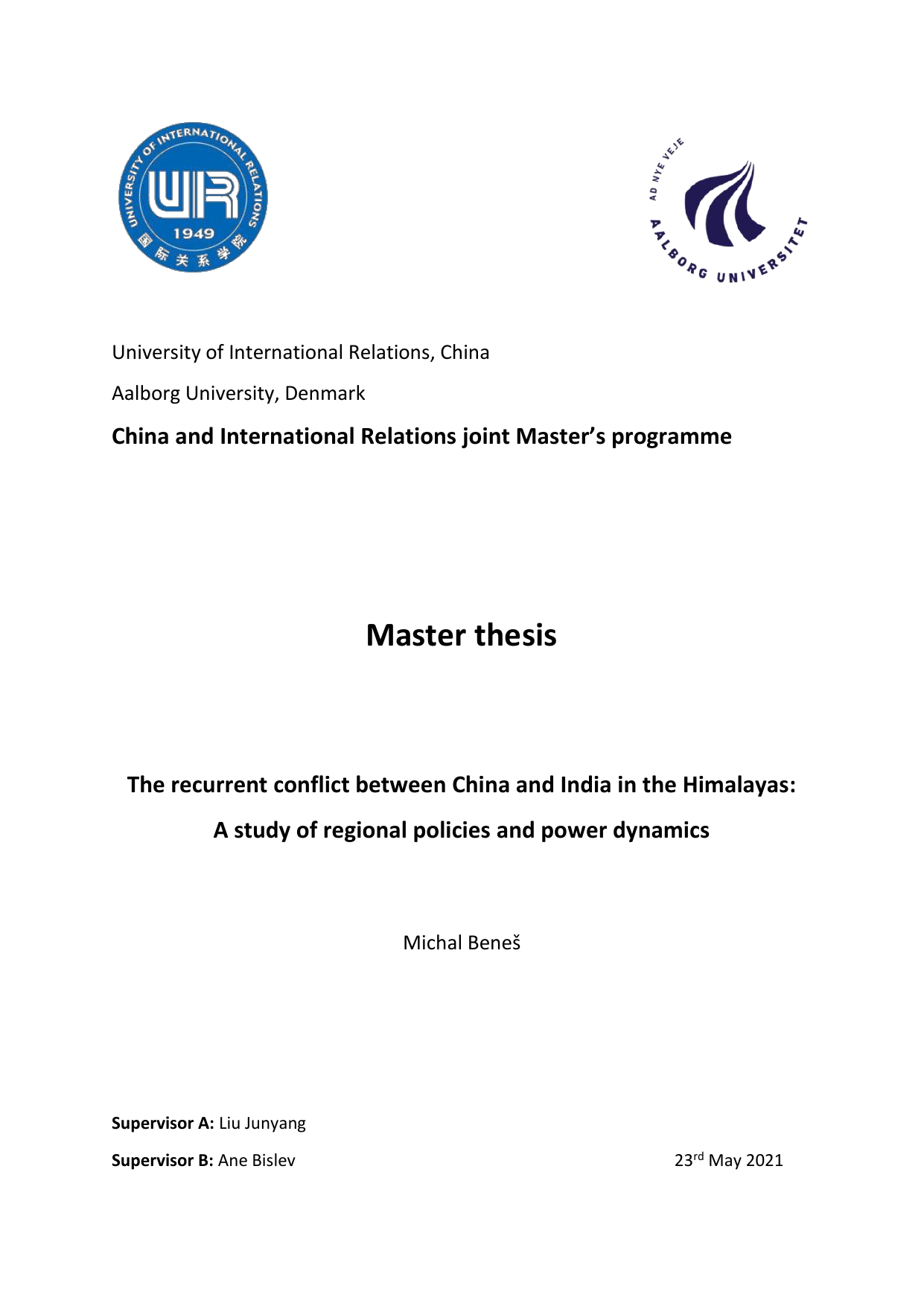
The recurrent conflict between China and India in the Himalayas: A study of regional policies and power dynamics: A study of regional policies and power dynamics
Author
Term
4. term
Education
Publication year
2021
Submitted on
2021-05-24
Pages
67
Abstract
This thesis’ main research purpose is to understand why the border conflict between India and China in the Himalayas has not been solved, as of May 2021. A secondary focus is put on the understanding of dynamics that escalate or deescalate the standoff over time. The objective is to contribute to the academic discussion surrounding the understanding of recurrent and frozen conflicts. This has been done through the holistic analysis of economic, political and military policies both sides engage in, as well as through the look at the historical background of the conflict, ties to its people’s social identities and the role geography can play in dispute (de)escalation. The research is guided by the theoretical base of the securitization and desecuritization theories, complemented by defensive neorealism. The key argument for China and India not being able to reach a feasible conclusion is the finding that the Himalayan conflict is not about the territory anymore. It rather represents a struggle for the influence of two rising powers that have inevitably clashed in their perceived backyard, which is represented by the mutual unwillingness of both countries to compromise. As well as by the sheer complexity of the border conflict, which is not only about borders anymore, being instead closely intertwined with a whole host of political, social, military and economic issues. Many of them went over the time so far that they became practically unsolvable. Therefore, it is highly unlikely that any meaningful, long-lasting and internationally accepted resolution of the Himalayan border conflict will occur in the coming years.
This thesis’ main research purpose is to understand why the border conflict between India and China in the Himalayas has not been solved, as of May 2021. A secondary focus is put on the understanding of dynamics that escalate or deescalate the standoff over time. The objective is to contribute to the academic discussion surrounding the understanding of recurrent and frozen conflicts. This has been done through the holistic analysis of economic, political and military policies both sides engage in, as well as through the look at the historical background of the conflict, ties to its people’s social identities and the role geography can play in dispute (de)escalation. The research is guided by the theoretical base of the securitization and desecuritization theories, complemented by defensive neorealism. The key argument for China and India not being able to reach a feasible conclusion is the finding that the Himalayan conflict is not about the territory anymore. It rather represents a struggle for the influence of two rising powers that have inevitably clashed in their perceived backyard, which is represented by the mutual unwillingness of both countries to compromise. As well as by the sheer complexity of the border conflict, which is not only about borders anymore, being instead closely intertwined with a whole host of political, social, military and economic issues. Many of them went over the time so far that they became practically unsolvable. Therefore, it is highly unlikely that any meaningful, long-lasting and internationally accepted resolution of the Himalayan border conflict will occur in the coming years.
Documents
